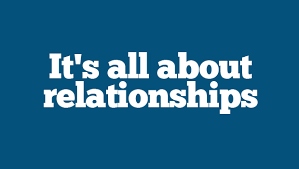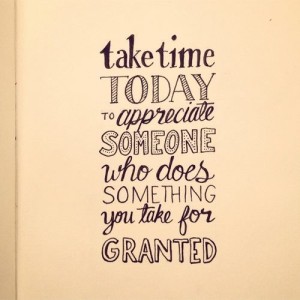 As librarians we are in the relationship business which means constantly strengthening the ones we have and always reaching out to form new ones. We must cultivate relationships with students—not as a friend but as a trustworthy, safe adult. We build relationships with all staff members. Although we are closer with some than others, every teacher, secretary, nurse, and custodial staff should feel welcome and comfortable in asking for and getting assistance. And we develop a relationship with our administrators.
As librarians we are in the relationship business which means constantly strengthening the ones we have and always reaching out to form new ones. We must cultivate relationships with students—not as a friend but as a trustworthy, safe adult. We build relationships with all staff members. Although we are closer with some than others, every teacher, secretary, nurse, and custodial staff should feel welcome and comfortable in asking for and getting assistance. And we develop a relationship with our administrators.
One of the best techniques for improving all our relationships is to acknowledge others. Saying “thank you” is a natural courtesy, and most of us do it without thinking. And that’s the problem. A thank you is a nice gesture, but it doesn’t foster relationship. Be specific in your thanks. “I really appreciated your willingness to wait while I finished helping a student,” is much more impactful than “Thanks for waiting.” “It was so thoughtful of you to bring me a copy of the handouts in that session you attended,” means much more than, “Thanks for giving me this.”
Acknowledging others goes beyond thanks. Sometimes it’s as simple as noticing an item of clothing or a new haircut. Other times it is focused on academic activity such as being noticing when someone does something particularly well and making a comment indicating why you found it noteworthy.
Handwritten messages are an excellent way to acknowledge someone. We are all so busy, and making time to find a note card, write the message, and put it in a teacher’s mailbox shows caring. The recipient, who is equally busy, will recognize you went the extra mile and remember what you did.
 We are all quick to say “good job” when a student does something well, but that too is offhand. Point out what you thought made it such a good job. Also be aware of those not yet doing “a good job” who feel you only notice those doing well—or those getting into trouble. Saying “I think you are showing such perseverance in using that app. You are developing a great habit,” shows you are tuned into all students’ “dispositions.”
We are all quick to say “good job” when a student does something well, but that too is offhand. Point out what you thought made it such a good job. Also be aware of those not yet doing “a good job” who feel you only notice those doing well—or those getting into trouble. Saying “I think you are showing such perseverance in using that app. You are developing a great habit,” shows you are tuned into all students’ “dispositions.”
Focused acknowledgement seems simple, but it requires you to be an active listener and a careful observer. Instead of thinking about what you need to do next, you have to tune into the other person. In an age where multi-tasking is extolled that centered attention on just one thing is hard. As with most difficult tasks, practice makes perfect. Work at acknowledging at least one person every day. In time, you will get so good at it, it will be as natural as a simple thanks.
